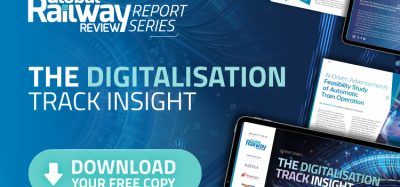Indonesia’s plans to harness digitalisation for rail transformation
Posted: 14 November 2019 | Erni Basri (Ministry of Transportation Indonesia), Global Railway Review | No comments yet
Erni Basri, Deputy Director for Track and Building Infrastructure Railway Area I at the Ministry of Transportation Indonesia, tells Global Railway Review about Indonesia’s plans to develop its rail network and take advantage of the benefits digitalisation can bring.


We believe there are several key capabilities that underpin the role of rail in our future. The Indonesian Government is guiding all sectors towards digitalisation, making ‘Indonesia 4.0’, and rail is no exception. The vision of our President and the Advanced Indonesian Cabinet’s National Action Plan is that we should consider expanding the financing schemes available to new sectors, including urban transportation.
The Indonesian Government is guiding all sectors towards digitalisation, making ‘Indonesia 4.0’, and rail is no exception.
Guidance to provide future planning until 2030 is set out in the Indonesia National Railway Master Plan (INRMP), Minister of Transportation Regulation No. KP.2128/2018. The implementation of this mobility planning is still being drafted under the guidance of the Ministry of National Development Planning.
What challenges/obstacles are in the way to ensure rail is a key mode of transport for Indonesia in the future?
The Midterm Development Plan for Indonesian rail is to secure government funding that is supported by private investment. The plan estimates an investment of approximately US$19 billion, of which 63 per cent will come from the government, and 37 per cent will come from private investment. Furthermore, we hope to obtain funding which will support the creation of new, and maintenance of existing, infrastructure along Indonesia’s rail network until 2030. Once again, our goal is to acquire robust funding that is supported by private investment. For infrastructure, we estimate an investment of US$65 billion is needed, 64 per cent of which will come from government budget, and 36 per cent from private investment.
How do you envisage the use of digital solutions and innovative technology playing a part in Indonesia’s rail network?
Digital solutions have the power for us to create an active, efficient rail network, that works for the people.
Digital solutions have the power for us to create an active, efficient rail network, that works for the people. Technology can enable us to optimise speeds, reduce travel times, and convey information digitally, thus enhancing passenger experience. There are three elements that need to be considered in making use of these innovations. Firstly, how we will deliver the new technologies; secondly, how we will manage the life-cycle of those assets; and thirdly, how to integrate them within our existing rail structure. Indonesia needs to develop the use of technology, particularly in the areas of passenger services, manufacturing, signalling, infrastructure, and rolling stock management.
Has a country delivered a standout project pushing the use of digital technology in rail that you have admired, and why?
Japan, Europe, China, and Korea have adopted digital technology successfully. We have had experience of this whilst working together to implement digital technology. We strongly support local companies to enhance sharing knowledge from other countries. The journey to digitalisation is a long one, and we need to make the most of knowledge and expertise from those around us if we are to make a truly sustainable and successful use of digital innovations.
What would you like to see change most within Indonesia’s rail industry over the next five years?
Making Indonesia Digitalise 4.0 or maybe 5.0 is our key aim. By delivery of competitive, integrated, elevated technology and synergy with the industry, we can achieve affordable and responsive development.
The Strategy of National Railway Development until 2030 focuses on:
- Network services enhancement
- Security and safety enhancement
- Technology transfer and industrial development
- Human resources development
- Institutional development
- Investment and funding.
We wish to see our six target cities of Jakarta, Bandung, Semarang, Surabaya, Makassar, and Medan having transformed their urban mass transit systems using digital solutions. We hope to see plans, which are currently under discussion, to make a new ‘smart city’ capital of Indonesia in East Kalimantan, becoming a reality. The Indonesian Government and industry should be working together to make sure we make the most of the transformation to digitalisation.









